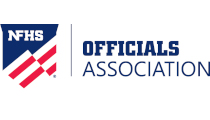
An observer at a recent basketball tournament shared his notes with other officials a few days later. He left the names out of his comments to not embarrass any official but the discussion was extremely valuable.
He noted that one official would often comment from the lead position, “Keep moving, keep moving.” The observed noted that most of the players being encouraged to move, did not. He began his own counting finding that five and six second stays in the lane were common, despite the encouragement from the official. After the game in the locker room, the observer asked the official about not having a three-second violation call. “I don’t want to affect the flow of the game. I never call three seconds,” the official stated.
In a later game that day, the observer noticed that none of the officials had a visible count in the backcourt or a closely-guarded situation. The more he watched, he began his own mental counting on full court pressing situations. Still, no count from the officials. The coaches and fans were pleading for a count, but none was given. In the observer’s opinion, there was not a missed 10-second violation, but a couple of situations were close. The locker room chat included a discussion about these counts with the officials. Their responses were, “We aren’t interrupting the game for something like that. The defense is preventing them from scoring so why blow a whistle?”
The observer also recounted how there were instances of shirttails not being tucked in, illegal hair control devices being worn and a host of illegal sleeves, wristbands, compression garments and headbands being used. In nearly every case, the officials explained to him that those things weren’t important and they weren’t going to make the player, coach or crowd angry by dealing with them. In a few instances, the officials simply stated that they had not noticed the illegal equipment.
The bottom line is that officials during these games were determining which rules they would enforce and which they would ignore. Sometimes these issues were discussed in the pregame so all officials could agree and other times, it was simply how it worked out. When questioned, the observer indicated that each of these games was officiated by a crew that was familiar with each other and not the first time they had been together. The question as officials, “Is this preventative officiating or is this allowing a player or team to have an unfair advantage?”
The observer said that he included each of these items in his report and considered them a negative mark on the official. He believed this went beyond passing on a call and went into the level of unprofessional conduct by the officials.
How do you react to these situations? Do you have other situations that you might avoid enforcing during a game? Would you ever tell the teams that you were not enforcing specific rules?
Most veteran officials can remember a game where they were lenient on enforcing the traveling rules or were generous in the length of their counts. However, to not enforce certain rules often seems to penalize one team to the benefit of the other. Good defensive pressure should be rewarded if it meets the requirements of the closely-guarded rule. Making the call and giving the ball to the defense is not an unnecessary interruption in the game but a reward for a job well done by that player. Allowing a player to remain in the lane without any effort to move is penalizing the defense by putting them at a disadvantage.
Many officials debate the value of some of the equipment and uniform rules. However, if it is a rule, it should be enforced. Would we accept an official deciding the rule prohibiting a player from holding another didn’t seem correct so they wouldn’t enforce that rule? Why should we care about players reporting to the table as a substitute, let’s just let subs in like hockey? (OK, maybe that’s a bit much.)
Officiating is about game management and that certainly means that there are “no calls” in certain situations. Passing on a call is the prerogative of each official and should not be questioned unless it grows into a complete avoidance of a rule. Think about your philosophy and that of your partners. Are you being fair to both teams?
The observer in this story stated that he believed the games were well officiated and fairly called. None of the issues discussed influenced the outcomes but the issues were noticed by players, coaches and fans. Just because the game went well, does it make it OK to not enforce a rule?
Your job as an official is to ensure the game is played fairly. It isn’t your job to worry about the flow of the game or how fast or slow the pace of the game happens. Read and study the rules. Know the rules. Know when passing on a specific play or call is appropriate. Know when a player or team is getting an unfair advantage. Most importantly, do the job you were hired to do.
Dave Sheets
Most Recent Articles
- nfhs news NFHS Celebrates National Girls and Women in Sports Day
- nfhs news NFHS Learning Center Delivers 25 Millionth Course
- Track & Field/Cross Country article Effective Communication with Athletes and Coaches
- nfhs news Player Equipment Changes Highlight 2025 High School Football Rules Revisions
- Player Equipment Changes Highlight 2025 High School Football Rules Revisions






